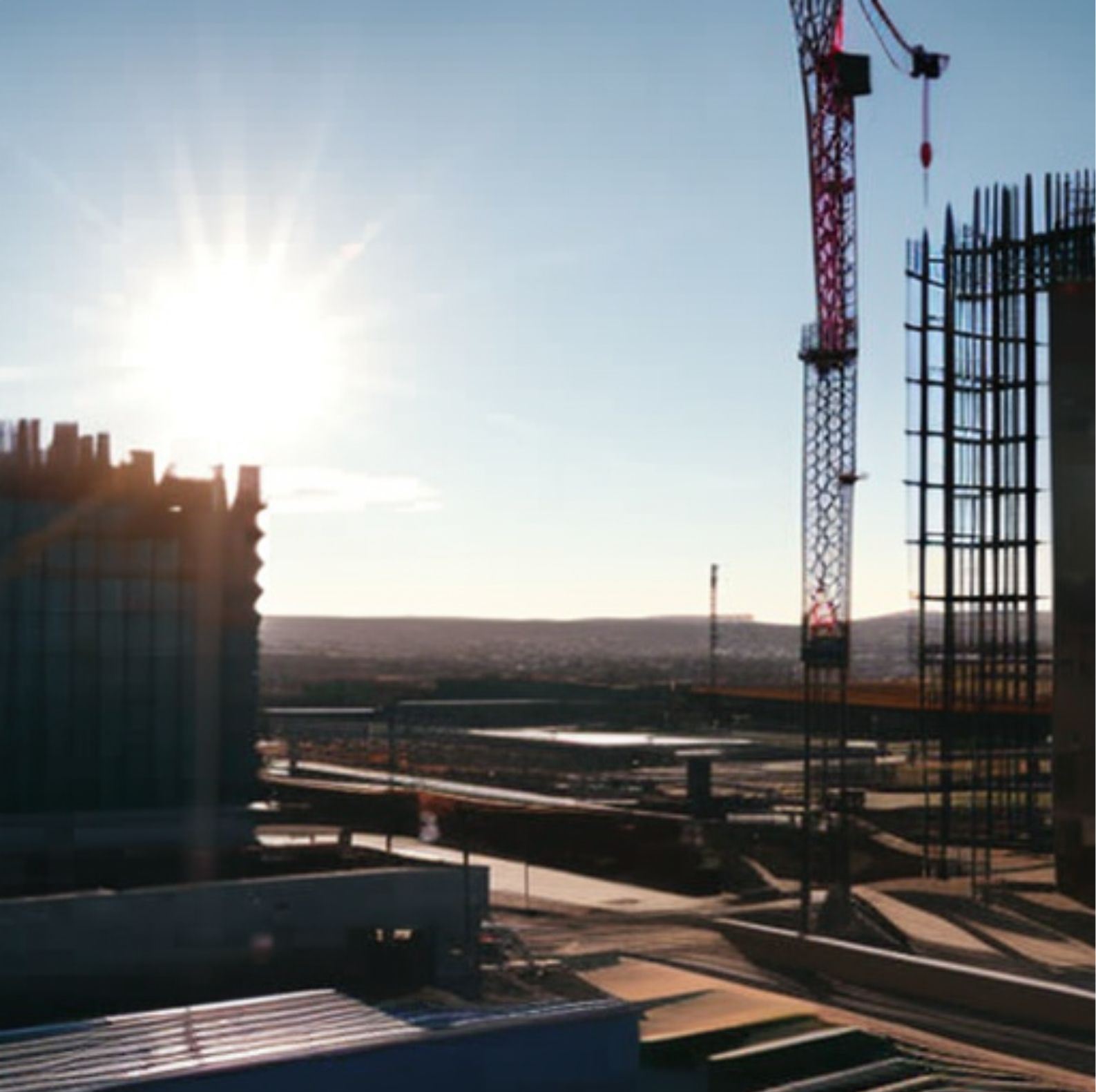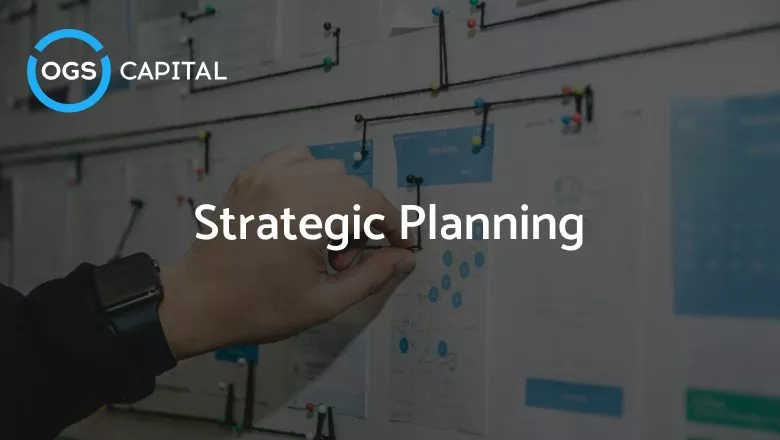Table of Content
Introduction
Construction projects are complex undertakings that need extensive planning and assessment. A crucial step in this planning process is conducting a construction feasibility study for the proposed project.
According to a report by KPMG, over 50% of engineering and construction professionals report experiencing at least one underperforming project in a given year. This highlights the need for thorough planning and assessment before embarking on any construction project.
A comprehensive construction feasibility study can help to minimize the chances of underperforming projects by identifying and addressing potential issues early on in the project development process.
What is a feasibility study in construction?
A feasibility study in construction is like a “check-up” for a building project. It helps to determine whether the project is a viable idea and whether it can be executed as planned.
The study looks at three main things:
- Can we afford to do it? (economic feasibility)
- Can we actually build it? (technical feasibility)
- Are there any rules or laws that would stop us from doing it? (legal feasibility)
The goal is to give the people making the decisions, like the project owner or investors, all the information they need to decide whether or not to move forward with the project. It’s like a “go or no-go” decision.
Feasibility study also helps to identify the potential opportunities and challenges of the project, and it also helps to examine the market potential, location, demand and other factors that are important to project success. It’s a good idea to have a construction company business plan and a feasibility study done before starting any big construction project.
Why is conducting a feasibility study important in construction?
Architects and developers must take construction feasibility studies seriously as they play a vital role in the project development process. A well-conducted real estate feasibility study can mean the difference between a successful project and a costly failure.
The following are some of the key benefits of conducting a feasibility study in a construction project:
1. Spotting problems early:
A feasibility study is a crucial step in the construction process, as it helps identify potential challenges that the project may encounter. These challenges can range from legal barriers such as zoning regulations and land-use permits, to environmental considerations like preserving wetlands or protecting endangered species. By identifying these challenges early on, the development team can proactively address them, reducing the likelihood of delays and cost overruns later on.
2. Deciding if the project is worth it:
Feasibility study can give a clear picture of the proposed construction project’s economic, technical and legal viability. By evaluating the costs, benefits, and risks associated with the project, a feasibility study provides stakeholders with the information they need to make an informed decision about whether to proceed with it. The study will also assess the project’s profitability, giving stakeholders a clear understanding of the potential return on investment. Such a study is crucial for decision-makers, as it helps them determine whether the project is worth undertaking or not.
3. Identifying potential benefits:
Feasibility study can help to identify potential benefits of the project such as market potential, cost savings, and future growth opportunities. The study can also provide a detailed analysis of the project’s revenue-generating potential and what it can bring to the area. This information is useful for decision-makers who are trying to decide whether to invest in the project or not.
4. Defining project scope:
Feasibility study helps in establishing the scope of the project, goals, objectives, and timelines. A feasibility study can give a thorough analysis of the project’s costs, benefits, and risks, which helps determine the project’s objectives and how much time and resources to allocate to achieve them.
5. Improving project planning:
Feasibility study provides valuable information for project planning, by identifying the potential costs, benefits, and risks associated with the project. By analyzing the project’s feasibility, a development team can better plan for and manage the project, resulting in a smoother and more successful outcome.

Construction feasibility study checklist:
A construction feasibility study checklist acts as a guide to make sure all critical considerations are accounted for during the feasibility study. Whether you’re a contractor, developer, or project manager, this checklist will help you make informed decisions and ensure the success of your construction project.
The following table outlines the essential information that must be included in a construction feasibility study:
| CONSTRUCTION FEASIBILITY STUDY CHECKLIST | |
| Information | Description |
| Site analysis and selection | The hunt for the perfect location is on! Evaluating and comparing potential sites is the first step in determining the best fit for the construction project. A fantastic site can be the foundation for a fantastic project. |
| Market demand and economic viability | It’s all about supply and demand! To figure out if the proposed construction will be a hit, market trends and demand must be analyzed. This helps to ensure that there will be plenty of folks eager to see the finished product. |
| Architectural and engineering design and cost estimates | A plan is worth a thousand words…and a well-designed one is worth a million dollars! During this stage, an architectural and engineering plan is created and the costs for materials and labor are estimated. These estimates will shape the project budget. |
| Building and zoning regulations | Don’t get caught off guard! Before construction can begin, local building and zoning regulations must be reviewed to ensure compliance and avoid any surprise roadblocks. |
| Construction schedule and phasing plan | Time is of the essence! A timeline for the construction project is developed, including phased completion of various stages, to keep the project on schedule and on budget. |
| Project budget and financial analysis | Money talks! A budget is developed for the construction project and analyzed to determine its financial viability. This step is crucial to ensuring the project is feasible and has enough resources to be completed successfully. |
| Environmental and sustainability considerations | It’s all about leaving a positive impact! The environmental impact of the construction must be evaluated and sustainability measures considered to make sure the project is both eco-friendly and sustainable for the long haul. |
| Potential risks and challenges | Nothing worth having comes easy! Potential risks and challenges must be identified and addressed to ensure a successful construction project. This includes legal and financial considerations, as well as any other obstacles that may arise. |
| Recommendations and conclusion | The moment of truth! The findings and recommendations for the construction project are presented, followed by a conclusion on its feasibility. This final verdict will help determine if the project is viable and ready to move forward. |
Types of feasibility study in construction
There are several types of feasibility studies for building construction that assess different aspects of a project, including technical feasibility, economic feasibility, legal feasibility, schedule feasibility, and operational feasibility.
Importance
Understanding the different types of feasibility studies help project managers and decision-makers make informed decisions and ensure that the project is aligned with their goals and objectives.
1. Technical Feasibility:
This type of feasibility study assesses the technical aspects of a construction project.
Purpose: To determine if the proposed project can be technically accomplished by examining factors such as the availability of equipment, skills of personnel, and the physical conditions of the site.
Example: In the case of feasibility study for a house construction project or a residential construction feasibility study, a technical feasibility study would assess:
- Availability of construction materials and equipment
- Skill level of the workforce
- Compliance with local building codes and regulations
- Site conditions (slope, soil stability, access to utilities)
- Building design (structural soundness, building code compliance)
- Time frame (realistic and achievable)
- Contractor availability (qualified and timely completion)

2. Economic Feasibility:
This type of feasibility study evaluates the financial viability of a construction project.
Purpose: To consider factors such as project costs, expected revenue, and the overall economic environment.
Example: In the case of a feasibility study on road construction, an economic feasibility study would assess:
- Project budget and funding sources
- Construction costs, including materials, labor, and equipment
- Operating and maintenance costs
- Projected revenue from tolls, taxes, or other sources
- Impact on land values, real estate development, and economic growth in the surrounding area
- Cost-benefit analysis to determine if the benefits of the project outweigh the costs
- Comparison with alternative projects to determine which project offers the best return on investment
3. Legal Feasibility:
This type of feasibility study assesses the legal issues related to the construction project.
Purpose: To consider factors such as zoning laws, building codes, environmental regulations, and liability issues.
Example: In the case of a feasibility study for hospital construction, a legal feasibility study would assess:
- Zoning laws compliance
- Building codes compliance
- Health and safety regulations compliance
- Environmental regulations compliance
- Licensing and accreditation requirements compliance
4. Schedule Feasibility:
This type of feasibility study evaluates the timeline of the construction project.
Purpose: To determine if the proposed schedule is realistic, considering factors such as the availability of materials and personnel, and the length of the construction period.
Example: In the case of a feasibility study for dam construction, schedule feasibility study would assess:
- Availability of resources (manpower, equipment, materials availability)
- Project complexity
- Environmental factors
- Dependencies of construction phases
- Budget constraints
- Proposed timeline’s realism
- Necessary changes for desired timeline completion
5. Operational Feasibility:
This type of feasibility study assesses the operational aspects of a construction project.
Purpose: To consider factors such as the ability to maintain and operate the facility after construction, and the impact on the community and surrounding area.
Example: In the case of a feasibility study for school construction, an operational feasibility study assess:
- Resource availability evaluation
- Workflow and processes analysis
- Stakeholder requirements evaluation
- Maintenance and upkeep costs evaluation
- Evaluating the ongoing maintenance and upkeep required to keep the school running effectively
Unlock the Potential of Your Next Construction Project with OGSCapital’s Expert Feasibility Study Services
OGSCapital consultants have years of experience in preparing comprehensive feasibility studies for construction projects. Our team of experts has a deep understanding of the industry and can provide you with accurate and reliable results that will help you make informed decisions about your project. With our expertise and attention to detail, you can trust that we will provide you with the information you need to ensure your project is technically, financially, legally, and operationally feasible.
One of the most common questions we hear is “how much does a construction feasibility study cost?” Our team of feasibility study consultants will work with you to understand your specific needs and budget to develop a customized feasibility study solution that fits your requirements.
Our consultants have a proven track record of delivering high-quality feasibility studies to clients in a timely and cost-effective manner. Whether you’re planning a hotel, restaurant, resort, or any other construction project, our team has the experience and knowledge to help you achieve your goals.
Choosing OGSCapital consultants means choosing a partner who will work with you every step of the way to ensure the success of your project. With our commitment to quality and customer satisfaction, you can rest assured that you’re making the right choice. Contact us today to learn more about our feasibility study services and how we can help you unlock the potential of your next construction project.
FAQ
Who prepares the construction project feasibility study?
A team of experts including architects, engineers, construction professionals, and financial analysts, with the aid of expert feasibility study consultants, usually prepares a feasibility study in construction project management.
How long is the feasibility study for a construction project?
The length of the feasibility study report in construction projects varies per project. However, the length usually depends on several factors such as the complexity of the project, the size of the project, the level of detail required, etc.
For assistance with a construction feasibility study, it’s advisable to seek help from an expert feasibility study consultant such as OGSCapital. Our team of seasoned professionals will offer a comprehensive and impartial analysis of your construction project. Reach us today to begin.
OGSCapital’s team has assisted thousands of entrepreneurs with top-rate business plan development, consultancy and analysis. They’ve helped thousands of SME owners secure more than $1.5 billion in funding, and they can do the same for you.



















